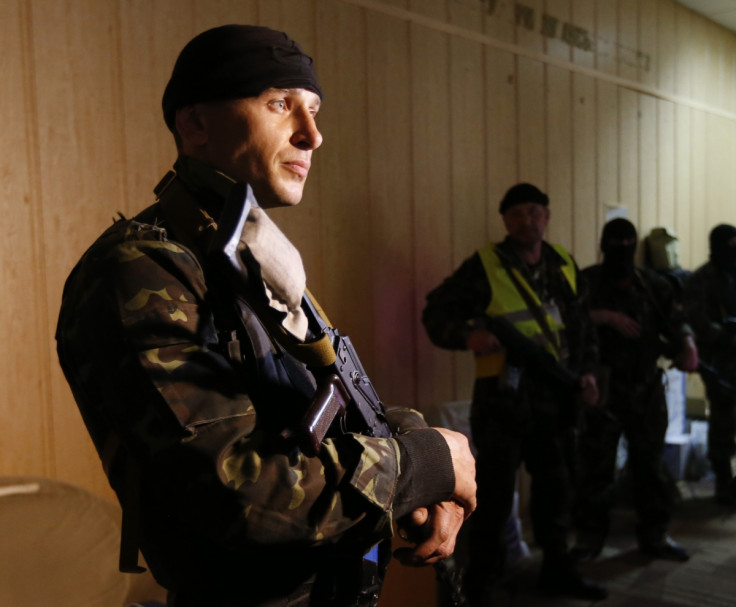Three spies for Russia arrested in UK – what does this mean?
Three Bulgarian nationals, who have each lived in the UK for more than 10 years, have been accused of spying for the Russian security services.

Following a major national security investigation, a report has revealed that three suspected spies for Russia have been arrested and charged.
The three individuals, which includes two males and one female, were arrested under the Official Secrets Act by counter-terrorism detectives from the Metropolitan Police Force.
The defendants, who are all Bulgarian nationals, are 45-year-old Orlin Roussev, 41-year-old Bizer Dzhambazov, and 31-year-old Katrin Ivanova.
The trio have lived in the UK for several years, residing in suburban properties and working a variety of jobs. It has also been revealed that at the time of their arrest, both Dzhambazov and Ivanova shared the same address in Harrow, North West London, and Roussev was a resident of Norfolk, Yorkshire.
They have been accused of working for the Russian security services and have been charged with possessing identity documents with "improper intention".
The authorities in the UK also claim that the three Bulgarian nationals were aware of the documents being fake.
The fraudulent documents include passports, identity cards and other documents for the UK, France, Spain, Bulgaria, Italy, Croatia, Slovenia, Greece and the Czech Republic.
Mr Roussev, who lived in Yorkshire after moving to the UK in 2009, has a long history of business dealings in Russia.
In Harrow, the neighbours of Mr Dzhambazov and Ms Ivanova have told the authorities that they are a couple.
The pair ran a community organisation that provided Bulgarian nationals with services to familiarise them with the "culture and norms of British society" and moved to the UK almost a decade ago. The police have continued to investigate their residence in Harrow.
The three Bulgarian nationals have been remanded and are due to go on trial at the Old Bailey in London in January 2024, to which they have not yet entered any plea to the charges.
Three suspected spies for Russia have been arrested and charged in a major national security investigation in Britain, according to a BBC report. pic.twitter.com/wMGjQT1916
— Srbija Evropa (@srbija_eu) August 15, 2023
Recently, the counter-terrorism police have publicly expressed their concern for the increasing amount of time spent on possible state threats – particularly those relating to Russia.
The UK government have also labelled Russia as "the most acute threat" to state security.
In 2006, Alexander Litvinenko, a former Russian Intelligence Officer, was killed in London after being poisoned by assassins working for the Russian state.
Again in 2018, Russia attempted another assassination in England.
In March 2018, Sergei Skripal, a former Russian Military Officer and Double Agent for British Intelligence Agencies, and his daughter, Yulia Skripal, were poisoned in the city of Salisbury, England.
According to the Organisation for the Prohibition of Chemical Weapons (OPCW), the pair were poisoned by means of a Novichok nerve agent. The poison sent both Sergei and Yulia to hospital for several weeks, where they received treatment for their critical conditions.
Police Officer Nick Bailey was also taken into intensive care after he attended the incident.
Months later, Dawn Strugess, a local woman of Wiltshire who had no connection to the Skripal incident, died after she was exposed to the Novichok nerve agent.
The abandoned Novichok nerve agent was traced to a bottle of perfume in Wiltshire.
Following the assassination attempt, three Russian nationals were charged with the 2018 attempt to murder Sergei Skripal. Two of the accused, who have been reported as GRU Military Intelligence Officers, were charged in 2018, and the third in 2021.
In 2022, Britain's Domestic Spy Chief – also known as MI5, revealed that more than 400 suspected Russian spies were expelled from Europe.
Last month (July 2023), the head of Britain's MI6 Foreign Spy Service invited Russian nationals to spy for Britain. He said: "I invite them to do what others have done this past 18 months and join hands with us. Our door is always open ... Their secrets will be safe with us and together we will work to bring the bloodshed to an end."
© Copyright IBTimes 2025. All rights reserved.






















